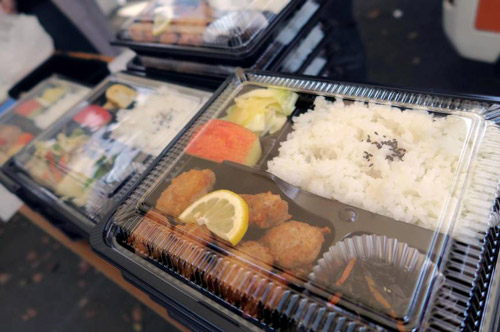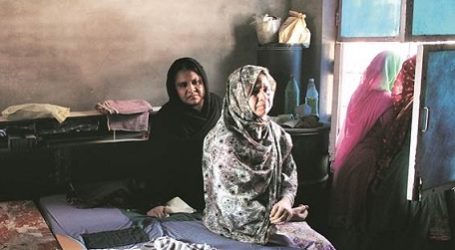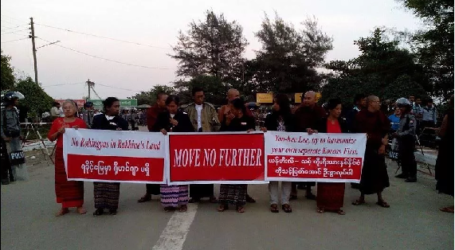TOKYO UNIV. CATERS TO MUSLIM STUDENTS


Tokyo, 15 Rajab 1436/4 May 2015 (MINA) – Catering to the needs of a growing number of Muslim students, Sophia University in Tokyo has started offering halal food lunches for sale in the university, bringing relief to Muslim students in its campus.
“Until now, I have been buying my lunch at convenience stores and asking my Japanese friends to make sure it doesn’t include pork,” Panji Purdi, a 21-year-old student from Indonesia, Onislam quoted by Mi’raj Islamic News Agency (MINA) as reporting.
“Halal food is usually rather expensive, but lunches sold here are low-priced and delicious.”
Serving halal meals to students started last April 16 at Sophia’s Yotsuya campus in Chiyoda Ward which offers about 150 units daily since April 16 for between ¥240 and ¥500.
The fare ranges from hamburgers and fried chicken to curry with rice.
The meals are prepared and served in accordance with Islamic law, which stipulates the correct method of draining animal meat of blood and prohibits the consumption of pork products and alcohol.
The decision to offer halal meals followed an earlier one to launch a student exchange program with four Southeast Asian countries last year.
“Since the nationalities of exchange students are becoming more diversified, we want to continue improving the environment for them,” a university spokesman said.
The lunches are popular among Japanese students and other exchange students as well, according to the university.
The University of Tokyo was the first to incorporate halal meat into its meal options in 2010 using meat ordered through the association, and four universities in the region have followed suit.
In January 2014, University of Yamanashi has also started offering halal meals in their menus to cater to the needs of the growing number of Muslim students.
Islam began in Japan in the 1920s through the immigration of a few hundreds of Turkish Muslims from Russia following the Russian revolution.
In 1930, the number of Muslims in Japan reached about 1000 of different origins.
Another wave of migrants who boosted the Muslim population reached its peak in the 1980s, along with migrant workers from Iran, Pakistan and Bangladesh.
Japan today is home to a thriving Muslim community of about 120,000, among nearly 127 million in the world’s tenth most populated country.
The concept of halal, — meaning permissible in Arabic — has traditionally been applied to food.
Muslims should only eat meat from livestock slaughtered by a sharp knife from their necks, and the name of Allah, the Arabic word for God, must be mentioned.
Muslims do not eat pork and consider pigs and their meat filthy and unhealthy to eat. Alcohol is also totally forbidden for Muslims.
Now other goods and services can also be certified as halal, including cosmetics, clothing, pharmaceuticals and financial services.(T/P008/R03)
Mi’raj Islamic News Agency (MINA)






